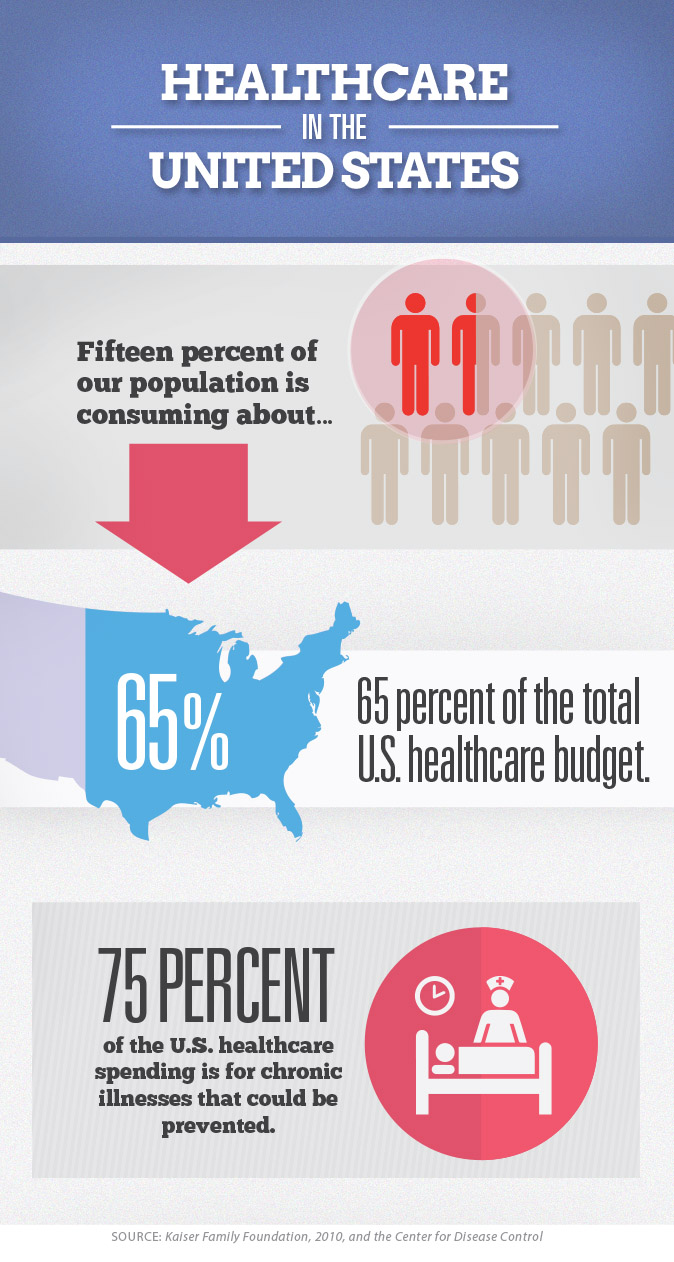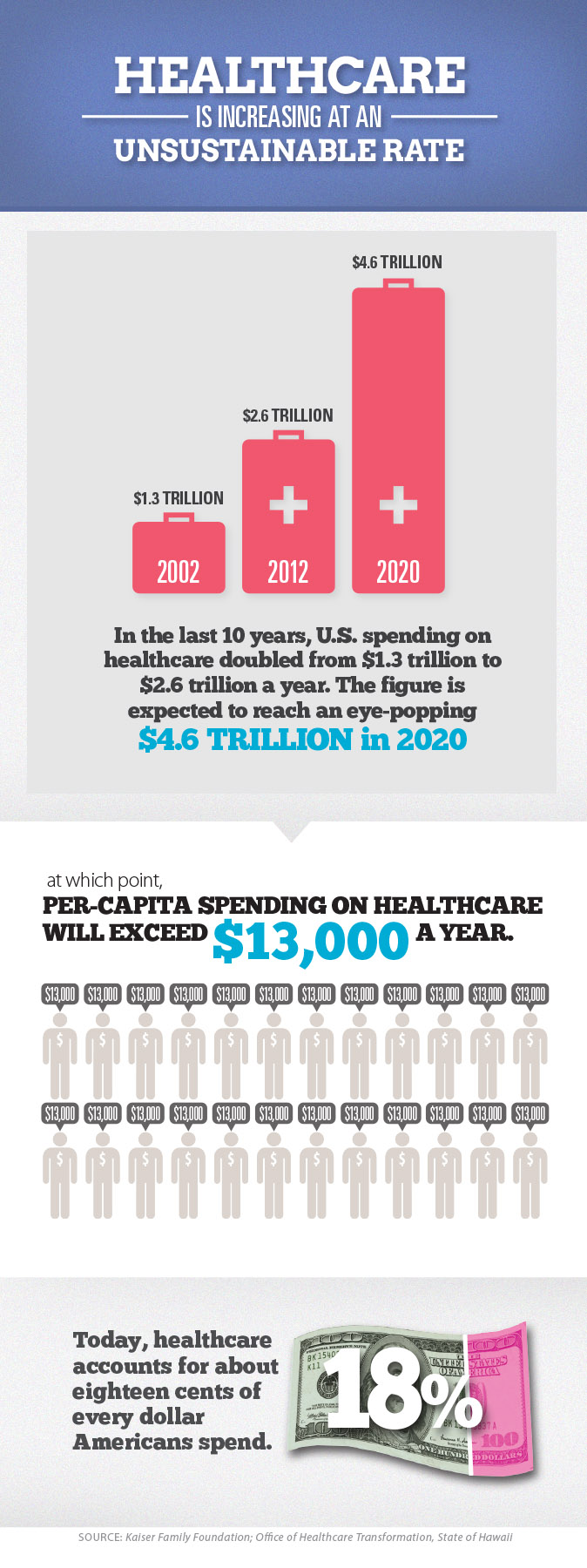
Who pays for the rising costs of health insurance?
We all do -- employees, consumers and taxpayers foot the bill. Businesses pass along a portion of rising premiums to their workers in the form of smaller raises and lower wages. Companies add the cost of the fringe benefits, including health insurance, to the price of their products and services that we pay for as consumers. Government programs pay 47 percent of the healthcare tab in the U.S. so taxpayers are footing the bill, too.
What does that mean for your pocketbook?
If you paid $5,000 in taxes last year, around $1,000 went to health care programs. (source: National Coalition of Health Care) The number of people without health insurance adds to the cost of health insurance premiums that insured Americans must pay for their coverage. When the uninsured cannot afford to pay the entire cost for the healthcare they desperately need, these costs are shifted to those who can pay. Doctors and hospitals charge insurers more for their services provided to patients who have health insurance, and the insurers pass on these shifted costs in the form of higher premiums for consumers and businesses that purchase health insurance.
 According to the Kaiser Foundation, health spending in the U.S. was about 90 percent higher than in most other industrialized countries. The average cost of employer-based family health insurance coverage more than doubled over the past decade, reaching $13,375 in 2009. During the same period of time, average wages increased by less than 35 percent.
According to the Kaiser Foundation, health spending in the U.S. was about 90 percent higher than in most other industrialized countries. The average cost of employer-based family health insurance coverage more than doubled over the past decade, reaching $13,375 in 2009. During the same period of time, average wages increased by less than 35 percent.
In the last 10 years U.S. spending on healthcare doubled, from $1.3 trillion to $2.6 trillion a year. The figure is expected to reach a staggering $4.6 trillion in 2020, at which point per-capita spending on healthcare will exceed $13,000 a year. Today, healthcare accounts for about 18 cents of every dollar Americans spend. Even with the ACA in place, that number is expected to continue to grow, and if nothing is done, healthcare costs threaten to derail the entire economy.
“The Hawaii Healthcare Project is targeting strategies for significant, positive change in delivering and paying for healthcare in Hawaii. These strategies will be supported by the power of information technology and data analysis to achieve continuous improvement and determine how public policy and programs can be shaped to support these changes.”
![]()